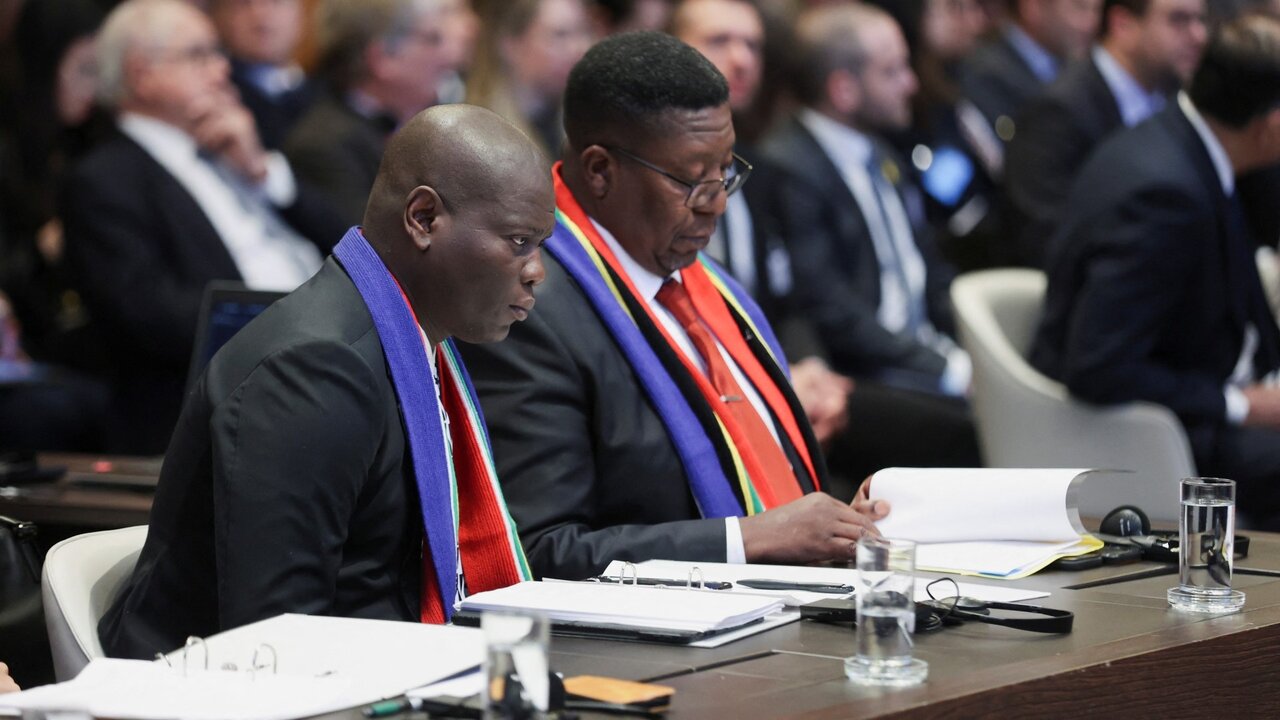Iran urges ICJ to act impartially on Gaza crimes

TEHRAN - Iran on Thursday urged the International Court of Justice (ICJ) to deal with the charges brought against Israel by South Africa “impartially” and not to submit to the pressure by the U.S., which is considered an accomplice in Israel's genocidal campaign in the Gaza Strip.
“We hope and want the International Court of Justice to impartially investigate the complaint of South Africa and some other governments against the Zionist regime regarding the crime against the people of Gaza and not to give in to the political and non-political pressures of the U.S.,” Iranian Foreign Ministry spokesman Nasser Kanaani said.
South Africa presented its case to the ICJ in the Hague on Thursday where Israel stands accused of genocide over its war on the Gaza Strip.
Legal representatives for the African country, which presented an 84-page report in December, accused Israel of breaching the UN Genocide Convention by aiming at the "destruction of Palestinian" life through its bombardment and siege of the enclave, which continued without let-up even as arguments were being presented.
"Israel’s special genocidal intent is rooted in the belief that the enemy is not just the military wing of Hamas, or just Hamas generally, but is embedded in the fabric of life in Gaza," said Adila Hassam, South Africa’s senior counsel, standing before the 15-judge panel in the Dutch courtroom, adding that determining this was aided by the "benefit of the last 13 weeks of evidence".
South Africa said Israel must be forced to "immediately suspend" its military operations in Gaza.
"Nothing will stop the suffering without an order from this court," said Hassam.
A number of countries have publicly voiced support for South Africa's case against Israel at the ICJ, including Malaysia, Turkey, Jordan, Colombia, Brazil, Bolivia, Lebanon, Namibia and Pakistan.
The Arab League and the Organisation of Islamic Countries, which represents 57 Muslim-majority nations, have also expressed support.
A ruling by the ICJ, which could come in a matter of weeks, is final and cannot be appealed. While countries can ignore the rulings, they can increase international and political pressure on the accused parties.
Israel, which will present its response to the court on Friday, has accused South Africa of engaging in "blood libel" by bringing the case to the international court and has defended its months-long operation in Gaza as self-defence in the wake of a 7 October attack by Hamas that killed 1,140 Israelis and foreigners.
Western states have also thrown their weight behind Israel, with the US saying South Africa's case was "meritless, counterproductive, completely without any basis in fact whatsoever".
Alonso Gurmendi Dunkelberg, a lecturer in International Relations at King's College London, said South Africa had, however, presented a "thorough and convincing" case on Thursday.
He told Middle East Eye that three key points stood out from South Africa's oral case: its argument that Israel's supposed humanitarian measures (such as evacuation orders from northern Gaza) were themselves genocidal; its citing of genocidal statements by Israeli politicians (and soldiers' understanding them as such) as proof of intent; and its insistence that Gaza is still occupied by Israel and that claims of self-defence could therefore be considered invalid, even if such actions were not genocidal in nature.
"Of course, we still need to hear Israel's rebuttal, but at this point I find it unlikely that the court would deny an order for provisional measures, since South Africa seems to have provided a case that meets the applicable standard of plausibility and urgent irreparable risk to protected rights," he said.
"The question now is what shape will these measures take and how specific will they be."
Ongoing bombardment
Even as South Africa's case was being presented in the Hague, provoking both pro-Israel and pro-Palestinian demonstrations in the Dutch city, the Israeli army continued to pound Gaza, which has already seen more than 23,000 people killed, mainly women and children.
Air strikes have continued to rain down on central and southern Gaza, while emergency services have been reportedly unable to reach casualties.
Eight people were also reportedly killed as Israel bombed the vicinity of the Al-Aqsa Martyrs' Hospital in Deir al-Balah.
Oxfam on Thursday said the Israeli military was killing 250 Palestinians a day, with many more lives at risk from hunger, disease and cold.
It added that the daily death toll exceeds that of any other major conflict of recent years, Oxfam added, as the war on Gaza nears its 100th day.
Sally Abi Khalil, Oxfam’s Middle East director, said the bombardment being unleashed on Gaza was "truly shocking".
"For 100 days the people of Gaza have endured a living hell. Nowhere is safe and the entire population is at risk of famine," she said in a statement.
"It is unimaginable that the international community is watching the deadliest rate of conflict of the 21st century unfold, while continuously blocking calls for a ceasefire."
